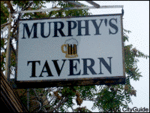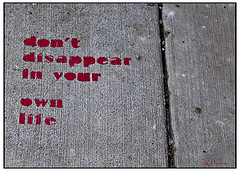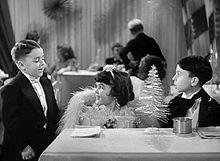October 2010 - Editor's Note - Today I am re-rerunning a post originally published in May 2009. If you make it to the end (good luck), I explain why.
-----------------------------------------------------------------------------------------------
It's the weekend, (Note: I guess it was the weekend when this first ran), and I don't have the focus to craft a detailed, thoughtful post on HR Technology, so I thought I would tell the story of my first day on my first 'professional' job that I got after graduating college.
I was a recent Business/Finance graduate and after graduating landed a job at AT&T as one of what seemed like at least 5,000 folks trying to keep track of the giant corporations finances.
I'd rather not say the exact year, let's just say we were all still trying to get used to it being 'the 90s'.
So on the first day, I turned up to the offices of the division that I was to be supporting in beautiful downtown Newark, NJ. The offices were fairly modern for the time, all the necessary amenities were present, and it was altogether a normal and sort of boring corporate office environment.
After a few hours of being introduced around the office, learning where the bathrooms and cafeteria were, it was about noon, and I was thinking about grabbing some lunch. Right about that time, two of the mid-level managers came by my desk to invite me to go to lunch with them. Ron and Frank were two 50 or so year old guys, with probably 25 years apiece in the company. As I was brand new on the job, I did not hesitate to accept the offer and gladly went along.
We exited the building and hit the streets of Newark for the short two or three block walk to the place these two guys liked to regularly have lunch. The place was called Murphy's Tavern.
It was about as dive as dive bars could be. Sort of tired looking, small, dimly lit, and with a nice, fragrant scent of about five million Marlboros and Lucky Strikes that had been smoked in there over the years.
But I was just out of college, and had spent more time that I should admit in similar looking bars while in school, so at first, the place did not phase me at all. I was feeling pretty good to get invited out to lunch by the leaders in the department on my first day.
As I said, this was a dive bar, not a restaurant, so the three of us took seats at the bar and were greeted by the bartender, a 60ish year old man named Jim. Jim greeted Ron and Frank (not much of a greeting really, the kind of hello that indicates it had not been a long time since they had last been in the bar), was introduced to me, and then immediately placed a bottle of Budweiser in front of all three of us.
That's ok I thought, it was summer, it was pretty hot that day, a cold Bud seemed like a good idea. Besides, the two managers who brought me to lunch were having one as well, so I better to go along, try to fit in and all that.
After about five minutes of small talk and a few sips of the Bud, Jim the bartender puts a second Bud in front of each of us. I had finished maybe half of my first beer, and number two was already there, queued up and waiting. Man, I thought, these guys aren't fooling around. But I was ok with it, I was fresh out of school, and I did not have any problem tossing back a few beers, so I wasn't stressed. Ron and Frank seemed to make nothing of the fact that no actual 'ordering' had been done, the beers just simply appeared with not a word exchanged between us and Jim the bartender.
So 10 or so minutes pass, I am now working on beer number two, when Jim puts a third beer down in front of all three of us. To this point no one has seen or asked for a menu (I was actually wondering if the place even served food), and I thought to myself, 'Dang, these guys don't even eat, they just go to lunch and get bombed'. Finally, a minute later Jim comes back over with a pad to take our lunch orders. I don't remember what I ordered, but I imagine it was the same thing as Ron or Frank had, as I had never been in the place before and apparently there were no menus. While we were waiting for our food, I excused myself to use the restroom, and on the way to the back of the bar where the restrooms were, I finally got a chance to look around a bit more.
The walls of the bar were covered in large poster-size photographs, all black and white, of various celebrities and athletes. James Dean, Joe DiMaggio, Robert DeNiro, Clark Gable, (Clark Gable?, that's pretty random), were some that I remember. Again, nothing too strange, just an old, dingy dive bar where these two old-timers seemed to eat lunch in all the time.
The lunch finally came, along with beer number four, and three of us finished up, paid the bill (the guys, or Jim or some combination paid for my tab), and we headed back to the office. After four beers and a greasy lunch, I was pretty much ready for a nap, and I don't really recall anything else about the afternoon. At about 4:00, Ron and Frank came by my desk to let me know they were stopping for a 'quick one' before heading home, and that a few of the higher-ups in the finance department were planning on meeting them, and I should probably come along and get introduced to these 'important' colleagues.
So we headed back over to Murphy's, which was at this point pretty empty. Jim the bartender was still there, we had more Bud (I was fairly confident at this point Bud was the only beer served there), and made some small talk. I was feeling really glad to be commuting via public transportation at this point as well, as were Ron and Frank.
About an hour passed, and the 'important' colleagues turned up, more middle-aged dudes who liked to drink Bud, and we proceeded to hang out for maybe another hour. I am now about seven or eight beers in on the day, but even in that condition I was able to notice that the bar was getting more crowded, and the clientele was exclusively male. And the folks who were coming in to the place were not the middle-aged office worker types that I was with. No, the new crowd was much younger, more racially diverse, and not dressed in white shirts and ties like we were. Soon, disco music started to play and some of the patrons started dancing in a small area near the back of the bar. About this point I had to make my way to the restrooms in the back and as I walked past the posters of Rock Hudson, Frank Sinatra, etc, and through and around the small crowd of guys dancing with each other, it finally hit me: Murphy's Tavern is a gay bar! I did not have a problem with that aspect really, but it is the kind of thing you typically mention to someone when taking them the first time, don't you think? I had maybe one more beer, and left, somehow making it to the train station for the train back home, still sort of amazed about the day and night.
So my very first day as a 'finance professional' was spent filling out a few forms in the morning, getting loaded at lunch with two of the managers, then returning to the bar with these same managers and some of the executives in our group, and finally realizing we were in (what I later learned) was a famous 'office worker' bar by day, and 'Newark's primary gay bar' by night.
I am not an expert on employee onboarding, but I do know this, it is probably not a good idea to take your new employee out for a four-drink lunch in a dive bar, then bring them back to the same dive bar/gay bar after work to 'network' with the execs, all the while not letting them know the 'unique' aspects of the place.
(Original) Note: If you have read this ridiculously long post, thanks for indulging me. The story is 100% true. I changed the names of the specific individuals mentioned in the post, although I am pretty sure there is a zero chance any of them will ever see this.
October 2010 - Editor's Note - One of the unnamed principals in the story, I am grieved to say, passed away last week and I was just informed about the sad news today. While the little tale above is presented as a bit of a laugh, I fondly remember Mr. Roy Baker as an early mentor, guide, and great spirit. He was one of the slowly disappearing 'company men', loyal to his wife, family, and company for decades. Farewell, my old friend.


 Steve
Steve




